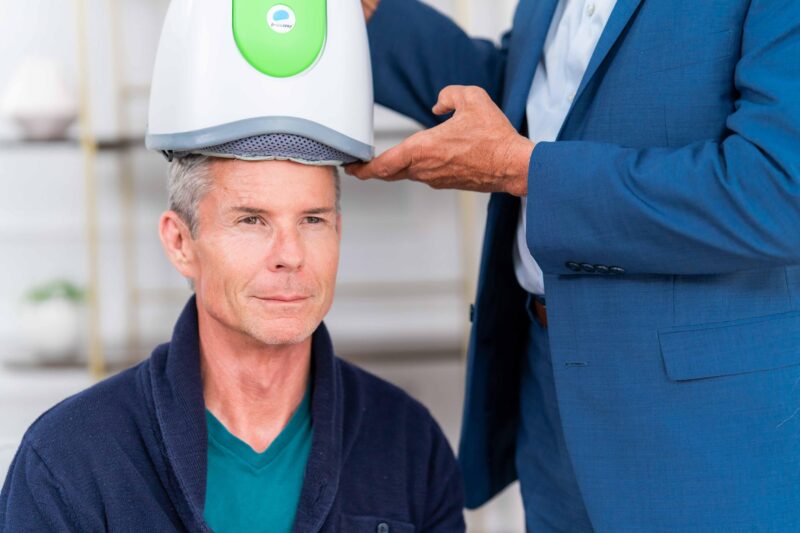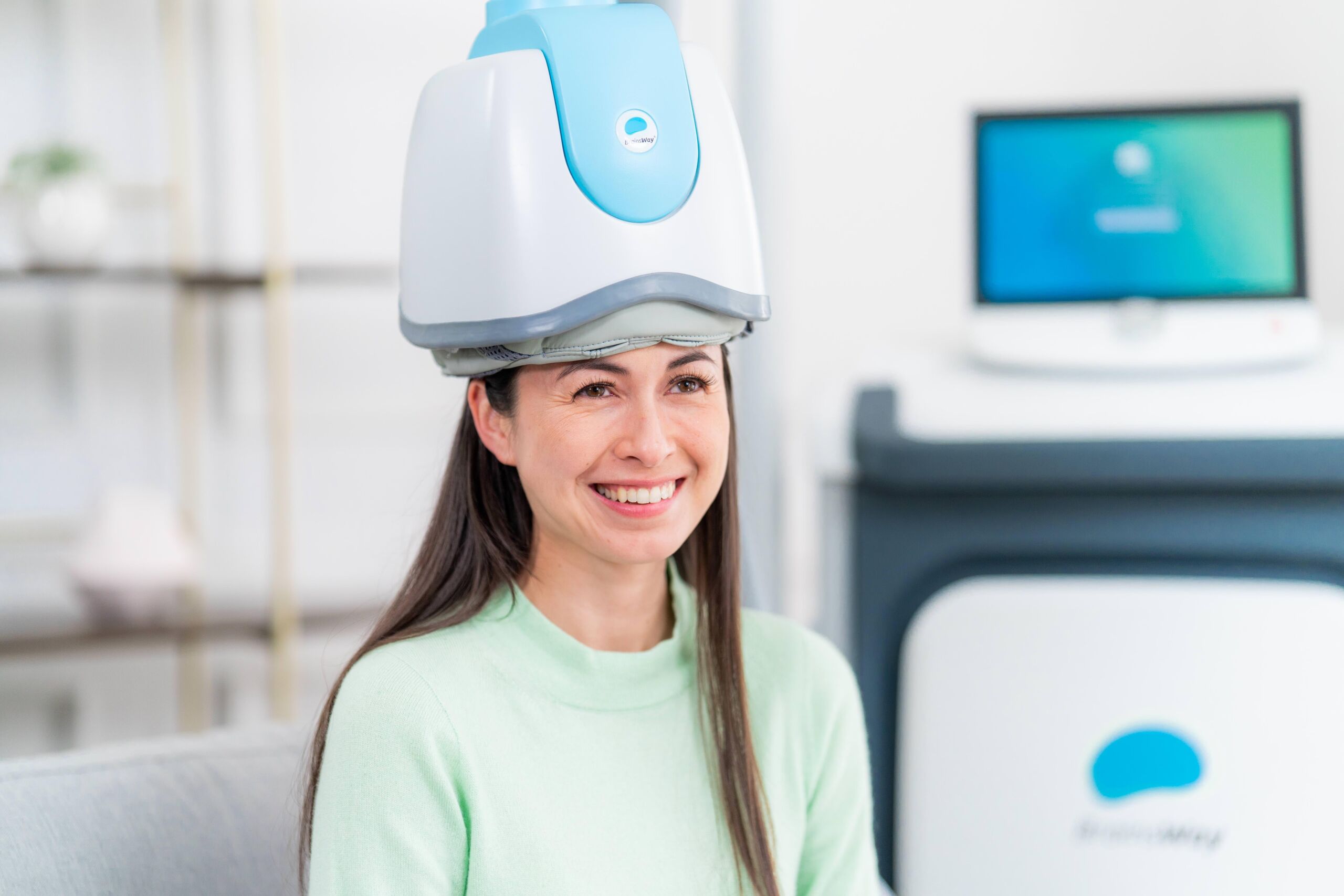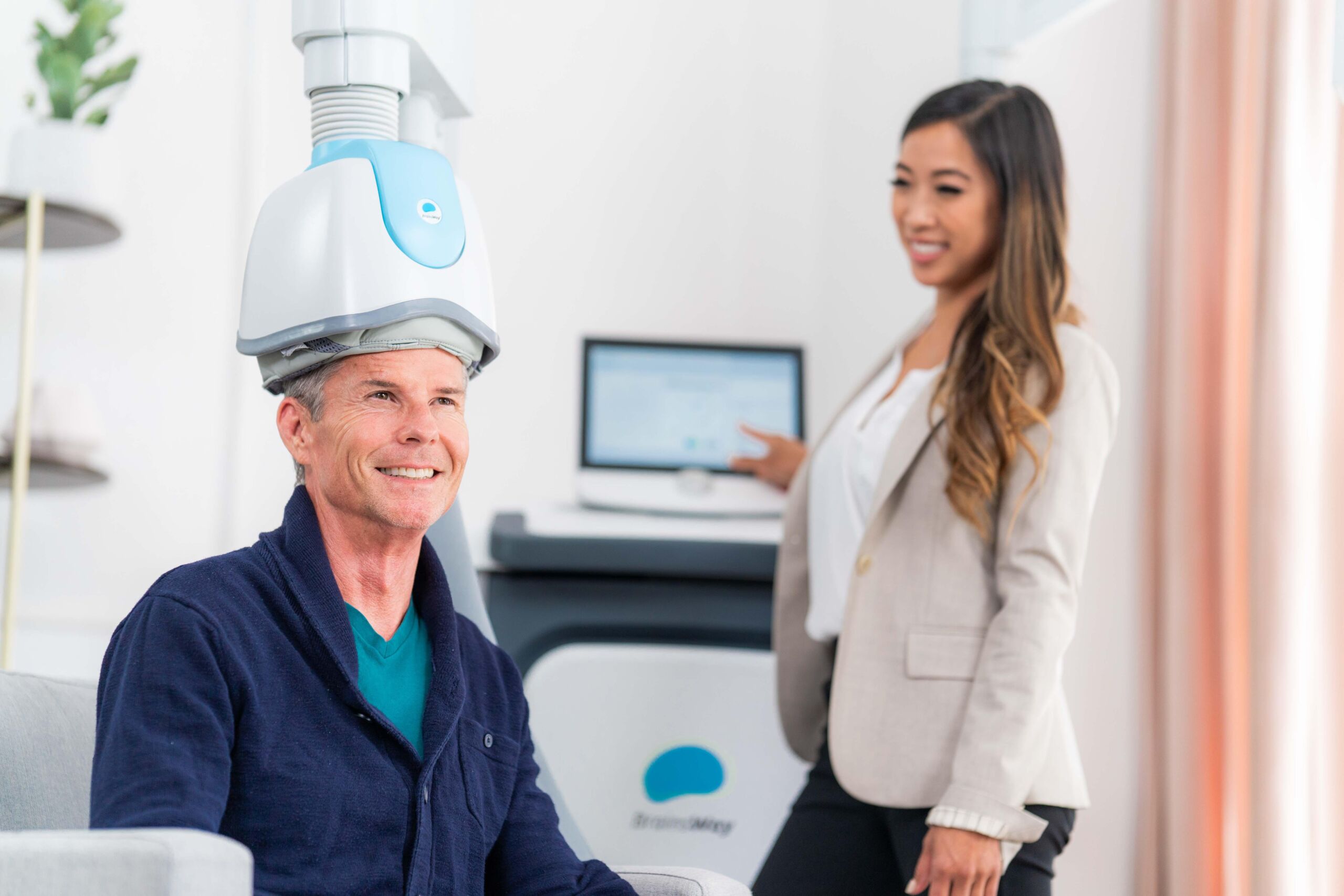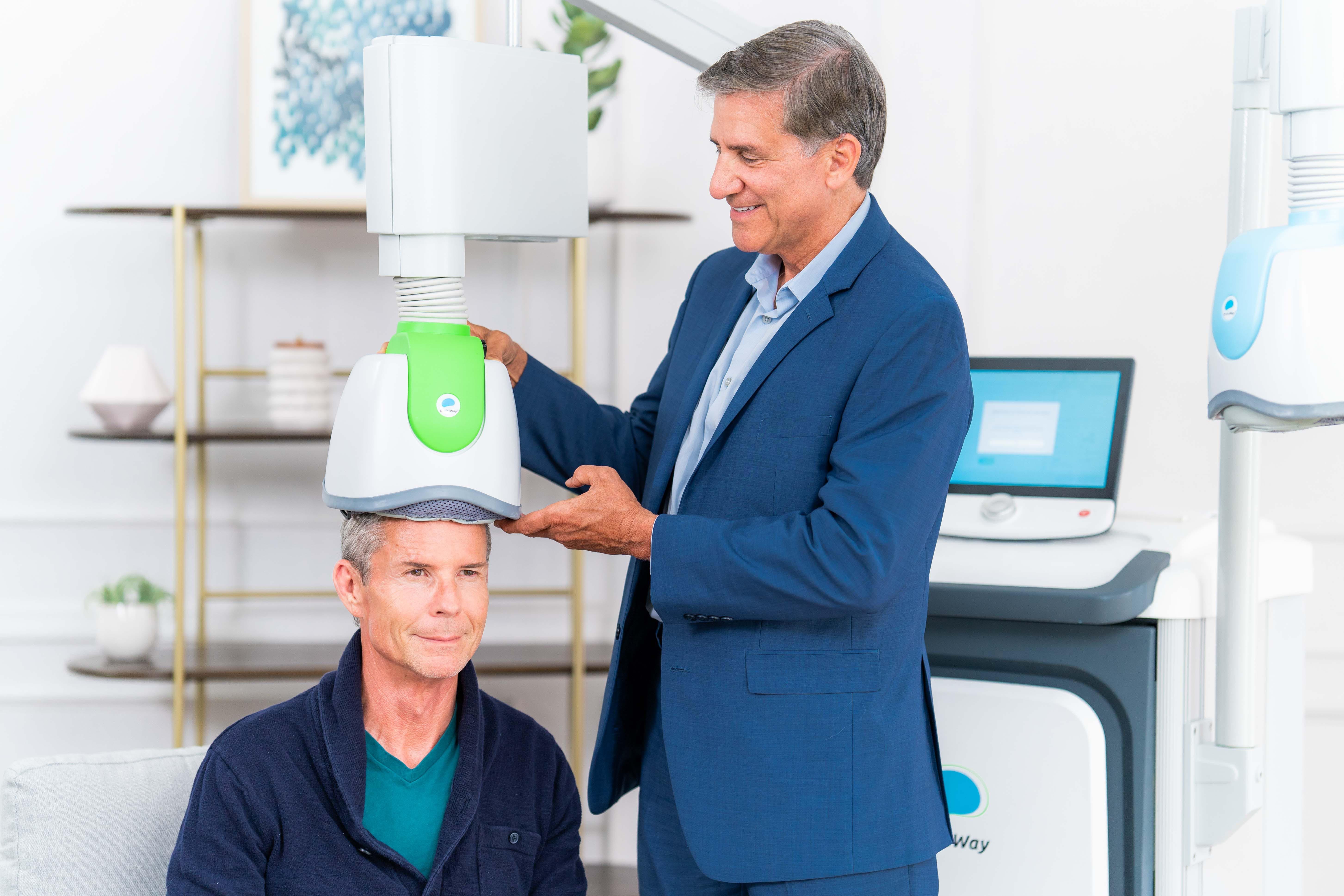Transcranial Magnetic Stimulation (TMS) for autism at Camelback Recovery in Phoenix, Arizona, offers an innovative, non-invasive approach to supporting individuals with Autism Spectrum Disorder (ASD).
TMS uses gentle magnetic pulses to stimulate specific regions of the brain involved in communication, behavior, and emotional regulation. While not a cure for autism, this advanced therapy can help improve symptoms such as mood instability, irritability, anxiety, and social engagement.
At Camelback Recovery, we provide TMS therapy for autism in a supportive, compassionate environment designed to meet the unique needs of every individual and family.
Call (602) 466-9880 to learn more about TMS treatment options for individuals with autism.

What You’ll Learn
- What is TMS therapy for autism
- How Transcranial Magnetic Stimulation for autism works
- What to expect during treatment
- Safety, benefits, and potential outcomes
- How to verify insurance coverage and begin care
What Is TMS Therapy for Autism?
TMS for ASD is a non-invasive, evidence-based treatment that uses focused magnetic pulses to activate underactive regions of the brain and promote more balanced neural communication.
Research into Transcranial Magnetic Stimulation and autism has shown that TMS may help with certain core and associated symptoms of Autism Spectrum Disorder, including:
- Irritability and emotional dysregulation
- Social communication challenges
- Repetitive behaviors
- Co-occurring anxiety or depression
TMS treatment for autism can be especially helpful for individuals who have not found adequate improvement through behavioral therapies or medication alone.
At Camelback Recovery, our clinicians tailor every TMS treatment plan to the individual, focusing on comfort, safety, and meaningful improvement in quality of life.
How Does TMS Work for Autism?
TMS works by gently stimulating targeted areas of the brain using electromagnetic pulses. For individuals with autism, these pulses help regulate activity in areas related to emotion, attention, and social processing.
Neuroimaging studies show that individuals with ASD often have differences in connectivity between brain regions. By promoting more synchronized communication between these areas, TMS for autism can help improve self-regulation, focus, and social awareness.
While TMS and autism research is ongoing, many patients and families have reported positive changes such as:
- Better emotional balance
- Improved communication and social interaction
- Reduced irritability or aggression
- Enhanced focus and cognitive function
Call (602) 466-9880 or visit admissions to schedule a consultation and learn how TMS therapy for autism may help your loved one.
How TMS Supports Care at Camelback Recovery
At Camelback Recovery, we take a holistic approach to wellness and mental health. TMS autism treatment can complement behavioral therapy, counseling, or medication management by addressing the brain’s underlying neurophysiological patterns.
Our clinical team works collaboratively with families, therapists, and healthcare providers to ensure that TMS treatment fits seamlessly into an individual’s overall care plan.
Benefits of TMS for autism include:
- Non-invasive and medication-free
- Minimal side effects and no downtime
- Personalized treatment targeting specific brain areas
- Can be combined with therapy and other supports
Call (602) 466-9880 or visit admissions to learn how our compassionate care team can guide you through the process of TMS for ASD.

The TMS Treatment Process at Camelback Recovery
Every TMS treatment plan is individualized to meet each person’s needs. Here’s what to expect:
1. Initial Consultation
Your TMS journey begins with a detailed consultation to determine whether TMS therapy for autism is suitable. Our team reviews the individual’s medical history, developmental background, and current symptoms.
2. Brain Mapping and Calibration
We use advanced technology to identify and target the specific brain regions associated with emotional regulation, attention, and social processing.
3. Daily Treatment Sessions
Treatment typically occurs five days per week for 20–30 minutes per session over the course of 4–6 weeks. Sessions are non-invasive, comfortable, and require no recovery time.
4. Progress Monitoring
Throughout the program, clinicians track responses and adjust stimulation settings as needed to ensure safety and effectiveness.
What Results Can You Expect from TMS for Autism?
While outcomes vary for each person, research suggests that TMS treatment for autism can lead to improvements in behavior, communication, and mood regulation. Many patients and families begin noticing gradual improvements after several weeks of treatment.
Commonly reported outcomes include:
- Calmer mood and improved self-regulation
- Increased eye contact and engagement
- Reduction in repetitive behaviors
- Enhanced ability to focus and communicate
At our treatment facility for mental health, our goal is to help individuals and families experience more balanced, connected, and fulfilling lives.
Step-by-Step Process
Initial Consultation
Comprehensive evaluation to confirm eligibility for TMS and review previous treatments.
Mapping and Calibration
A technician determines the optimal target site and magnetic strength unique to your brain.
Treatment Sessions
Most patients complete 30–36 sessions over 6–8 weeks, with each lasting about 20–30 minutes.
Progress Tracking
Weekly check-ins monitor your mood and adjust treatment parameters as needed.
Safety and Side Effects
Transcranial Magnetic Stimulation for autism is considered a safe and well-tolerated procedure when performed by trained clinicians.
Common, temporary side effects may include:
- Mild scalp discomfort during treatment
- Temporary headache following early sessions
These effects typically diminish as the body adjusts. TMS does not cause sedation, memory loss, or systemic side effects, making it an appealing alternative for individuals who prefer non-medication-based treatments.
Before treatment begins, our clinicians will review medical history and determine if TMS is appropriate for the individual’s unique needs.
Insurance Coverage for TMS Therapy
Many insurance providers now recognize TMS as a covered treatment for mood and behavioral health conditions.
Our administrative team will assist with verifying your benefits, obtaining pre-authorizations, and exploring financial options to ensure access to care.
Visit verify your insurance or call (602) 466-9880 to learn more about coverage and payment options.
Experience Compassionate Care with TMS for Autism
At Camelback Recovery, we understand the challenges families face when navigating autism care. Our goal is to provide innovative, evidence-based therapies in an environment built on compassion, expertise, and trust.
TMS for autism offers a new avenue for growth and healing—helping individuals strengthen emotional balance, improve focus, and connect more fully with the world around them.
Call (602) 466-9880 or visit admissions to learn more about how TMS can support your loved one’s wellness journey.
Serving individuals and families throughout Phoenix, Scottsdale, Mesa, Chandler, Gilbert, Glendale, Peoria, and surrounding communities.
FAQs: TMS for Autism in Phoenix, AZ
TMS for autism is a non-invasive treatment that uses magnetic pulses to stimulate areas of the brain responsible for communication, emotion, and behavior regulation, helping improve focus and emotional balance.
While results vary, studies suggest that TMS may help reduce symptoms such as irritability, repetitive behaviors, and emotional dysregulation in individuals with autism.
Yes. TMS is considered safe and well-tolerated. The most common side effects are mild scalp discomfort or temporary headaches.
Some individuals notice positive changes within the first few weeks of treatment, with continued improvement throughout the program.
Yes. TMS can be used alongside behavioral therapy, speech therapy, occupational therapy, or medication management for a more comprehensive approach.
Coverage varies by provider. Our team can help you verify your insurance benefits and explore your options for care.





